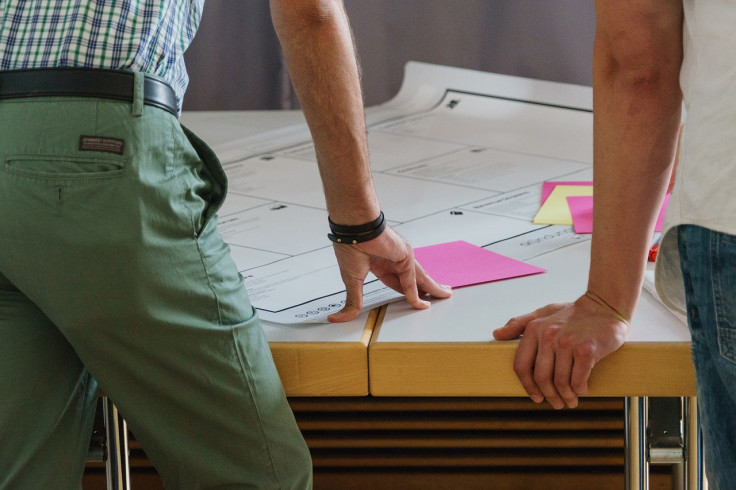Crafting Connections Through The Art Of Facilitation

An individual's voice gives them the power and agency to express their opinions, beliefs and stories. The words and thoughts one speaks can have a significant and long-lasting impact on other people's lives. Therefore, it is essential to note that every voice deserves to be heard. However, in group settings (i.e., work meetings, workshops, classes, etc.), ensuring that everyone in the room is heard could be challenging. For this reason, the role of a facilitator is highly needed and appreciated.
Take boardroom meetings, for example. Many of these meetings end up unproductive and inefficient due to uneven participation among quiet individuals who barely contribute to the discussion and boisterous ones who wish to speak at every chance, seemingly uninterested in what the others are saying. This is where facilitation comes in.
Facilitation is a mindset, an approach, a set of skills and a broad toolkit of behaviors that an individual (i.e., a facilitator, leader or overseer) utilizes to support a group of people doing collaborative work. One can perceive facilitation as an art form — a way to connect others. In essence, facilitation improves meeting outcomes and efficiency, manages counterproductive group behavior professionally and drives the group to accountability.
Myriam Hadnes, a facilitation evangelist, believes in the significance of the art of facilitation and its benefits. In her mission of bringing people together, Myriam cultivated NeverDoneBefore, a global, online community of (and for) facilitators who aim to challenge pre-existing practices by exploring and testing their own workshop ideas. She also established workshops.work B.V., an agency that offers facilitation services and training on topics of collaboration, innovation and communication.
The thought leader obtained her doctorate in behavioral economics from Goethe University Frankfurt. Before she launched her own business, she worked on university strategy, where she was hired by the university president who envisioned a new research model for the 21st century. This role opened Myriam's eyes to the power of facilitation, a concept different from traditional consulting approaches.
In 2017, Myriam launched a podcast featuring one facilitator per week. This venture opened doors, allowing her to facilitate workshops for large corporations. However, things took a turn when the pandemic hit. "Like many facilitators, I lost clients during the pandemic, but I have an extensive network of podcast guests, which I leveraged to start a unique experiment during the lockdown. In November 2020, I organized a global online 24-hour event and invited facilitators to host workshops in a way they have never done before. It was a magical experience, seeing everyone learning when nobody was teaching," she shared. This endeavor gave birth to NeverDoneBefore, a global community of facilitators who are beyond willing to leave the beaten tracks of facilitation to learn and grow.
Myriam remarked, "What I've observed throughout my career has contributed significantly to how effectively I do things now. What stood out to me was all the energy that is there when you help the people in an organization feel heard and have the opportunity to contribute. The organizational dynamics implode when you take this away from them and return to bringing in consultants who simply tell them what to do. This often leads to burnout, silent quitting and disengagement." The facilitation evangelist recognizes that being an effective leader does not require having all the answers. It entails asking the right questions and genuinely listening. She added, "Major problems in our workforce today can be solved if we approach it with empathy and employ facilitation skills to foster authentic connection with others."
What makes Myriam stand out from a sea of facilitators is her unique approach to facilitation training designed with two overarching goals. The first is to bridge knowledge gaps (e.g., honing leadership skills, ensuring psychological safety, addressing unconscious bias, etc.). Meanwhile, the second goal involves employing interactive methods that actively engage all members in the conversation. Myriam explained, "For a multinational client, we use breakout rooms for members of different departments and different countries to come together and engage in a shared topic. By doing this, we help them develop their skills while building strong bonds."
Myriam and her team's growth knows no bounds, as showcased in their successful collaborations. One notable example involves helping a multinational bank client establish a facilitation academy, which now operates independently. When asked about the most rewarding feedback she has received from the people she has worked with, Myriam answered, "I facilitated a board strategy meeting with ministers and corporate company leaders. After the session, they expressed that it was one of the most engaging conversations and look forward to future board meetings thanks to my help."
For the upcoming year, Myriam is set to establish a facilitation teaching platform and has plans to expand and evolve into a comprehensive service provider. The facilitation evangelist continues her mission to unite people, driven by her vision for every leader to learn the art of facilitation to create an environment where individuals feel heard and appreciated.
© Copyright IBTimes 2025. All rights reserved.





















